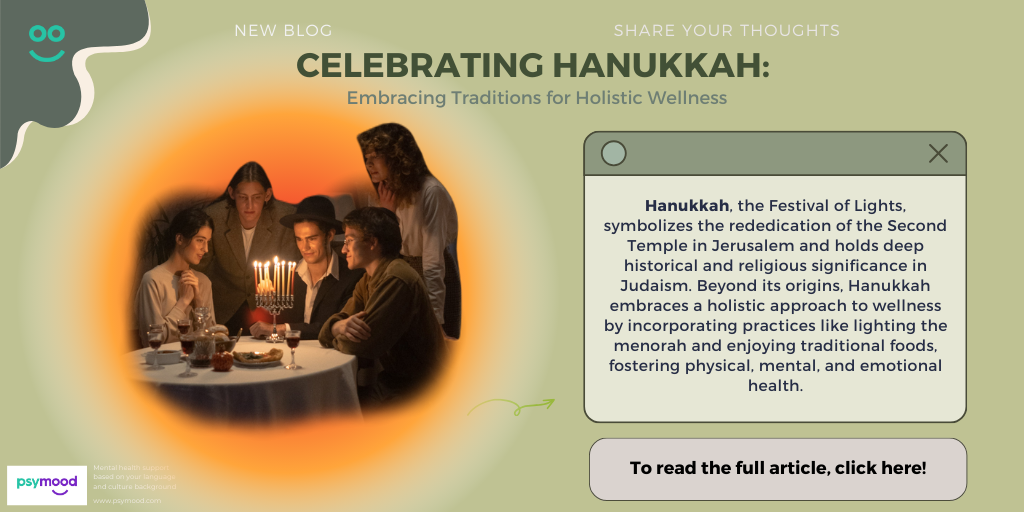Celebrating Hanukkah: Embracing Traditions for Holistic Wellness
Hanukkah, also known as the Festival of Lights, is a time-honored Jewish celebration commemorating the rededication of the Second Temple in Jerusalem. Beyond its historical and religious significance, Hanukkah offers a tapestry of practices that intertwine with the principles of wellness, fostering physical, mental, and emotional health. From kindling the menorah to savoring traditional foods, Hanukkah cultivates a holistic approach to wellness.
Rituals and Mindfulness
At the heart of Hanukkah lies the lighting of the menorah. Each night, a new candle is lit, culminating in the illumination of all eight candles by the end of the festival. This act embodies the essence of mindfulness, encouraging individuals to pause, reflect, and find solace in the warmth of the candles.
Embracing this ritual can align with wellness practices, promoting mindfulness and meditation. Taking a moment each night to observe the glowing candles can serve as a mindful exercise, fostering a sense of inner peace and grounding amidst the hustle of daily life.
Family Bonds and Social Wellness
Hanukkah is a celebration deeply rooted in family and community. Gathering around the menorah, sharing stories, playing traditional games like dreidel, and enjoying festive meals strengthen familial bonds and promote social wellness.
Research consistently emphasizes the importance of social connections for overall well-being. Engaging in these communal activities during Hanukkah fosters a sense of belonging and support, contributing positively to mental health. The joy and laughter shared during this time can uplift spirits and create lasting memories, nurturing emotional wellness.
Nutrition and Nourishment
Traditional Hanukkah foods, such as latkes (potato pancakes) and sufganiyot (jelly-filled doughnuts), hold cultural significance. While these dishes are often fried and indulgent, they can be enjoyed mindfully, balancing tradition with health-conscious choices.
Exploring healthier cooking methods, such as baking instead of frying or incorporating more vegetables into the latke mix, allows for a culinary celebration without compromising nutritional wellness. Emphasizing moderation and balance while savoring these delicacies aligns with a holistic approach to eating and nourishment.
Gratitude and Mental Well-being
Gratitude is a fundamental aspect of Hanukkah. The holiday commemorates the miracle of the oil lasting for eight days in the temple—a symbol of abundance and resilience. Practicing gratitude during Hanukkah by acknowledging blessings, expressing thanks, and performing acts of kindness cultivates a positive mindset.
Research indicates that gratitude positively impacts mental health, reducing stress and fostering optimism. Incorporating gratitude practices into Hanukkah rituals, such as reciting blessings or engaging in charitable acts, can contribute to emotional well-being and resilience.
Hanukkah serves as a beautiful tapestry intertwining tradition, spirituality, and wellness. By embracing the rituals, fostering connections, savoring festive foods mindfully, and cultivating gratitude, individuals can weave together a holistic approach to well-being during this joyous celebration. Through the luminance of the menorah, the warmth of familial bonds, and the richness of tradition, Hanukkah offers an opportunity to nourish the body, mind, and soul, promoting overall wellness for individuals and communities alike.
For More Interesting Posts
Related post: Managing the Holiday Blues, Cope with Grief during the Holiday Season


.png)
.png)
.png)
Recent Comments